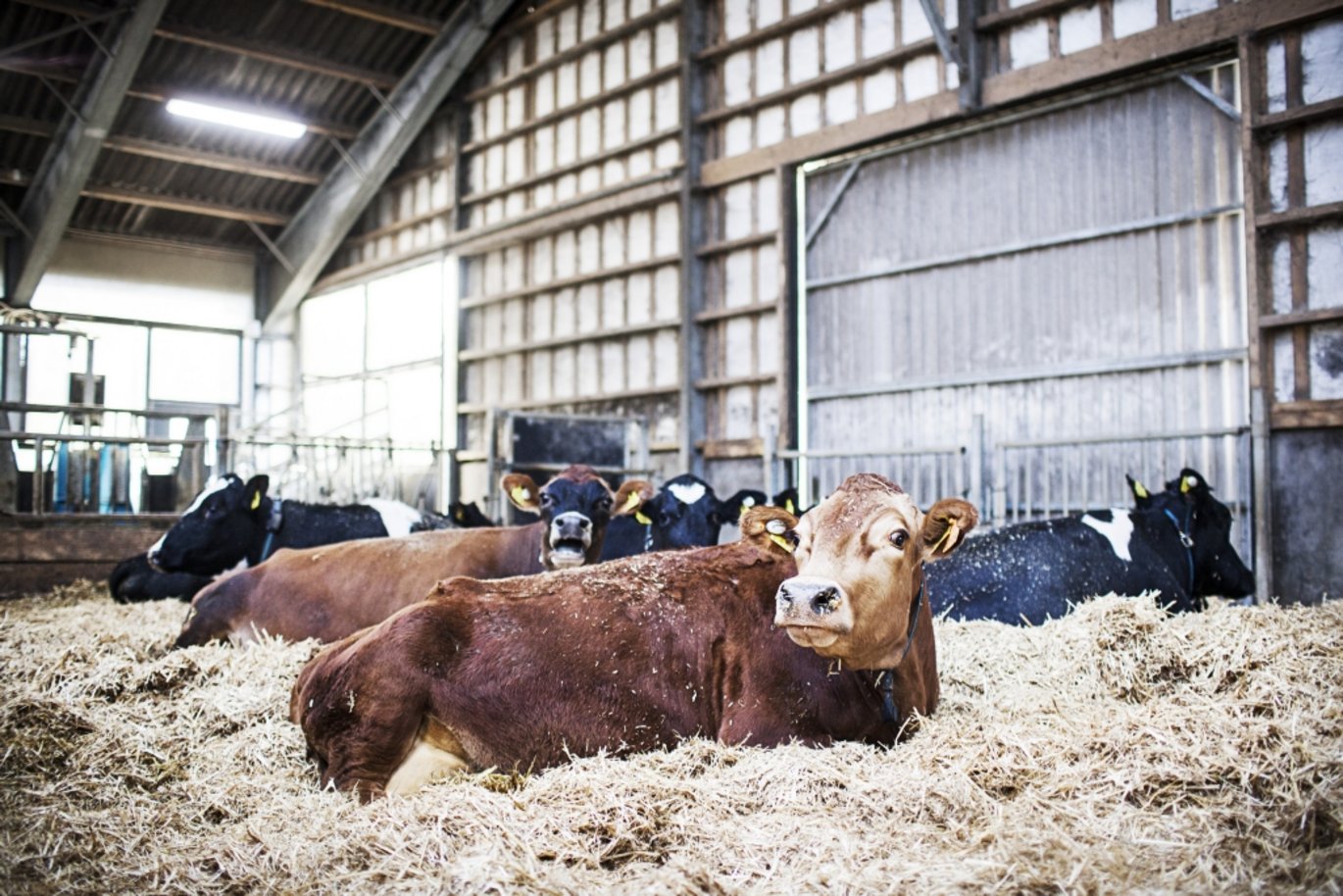A historic European partnership strengthens Danish animal health and welfare
What prompts the EU to invest billions in a partnership that over 7 years equates to a research investment of 0.8 euros per EU citizen? The answer lies in global challenges related to the transmission of infectious diseases and a desire for a harmonized effort to promote animal welfare in livestock production.

The European Commission has just launched its most ambitious research and innovation initiative to date, aimed at addressing infectious animal diseases and enhancing animal welfare in livestock production.
Based on holistic concepts called "One-Health" and "One-Welfare," the program aims to make a real difference in both the short and long term.
The European Partnership for Animal Health and Welfare, abbreviated EUP AH&W, will span the next 7 years and is expected to result in a total investment of 360 million euros.
Half of the funding comes from the EU's framework program for research and innovation, Horizon Europe, while the rest will be financed by the participating partners. Engaging in this partnership represents a new way of distributing EU research funds, as the research funds are managed by the partnership.
Aarhus University plays a prominent role
At the Department of Animal and Veterinary Science at AU, we are particularly pleased to lead the work program for projects that can be applied for by the partnership's members, known as the internal program.
The leadership of this program, collectively representing 2/3 of the total budget, demonstrate Denmark's commitment and leadership in the field of animal health and welfare.
In total, 90 partners and 56 research institutions from 24 countries are involved in this extensive venture coordinated by Ghent University. In addition to AU, University of Copenhagen, the Technical University of Denmark (DTU), and Statens Serum Institut (SSI) actively participate in the partnership, which also includes the Ministry of Agriculture, Food, and Fisheries as well as Innovation Fund Denmark.
"By participating in the partnership, Danish institutions can strengthen research and development efforts aimed at meeting the needs of Danish authorities and simultaneously enhance their international research profile," says Professor Jan Tind Sørensen, who is responsible for the internal program in the partnership.
Managing a pan-European partnership with such a large budget and number of participants is a complex task. Therefore, daily management is handled by a Management Team, which includes Jan Tind Sørensen. "It's an exciting task where I interact with many dedicated researchers and stakeholders across Europe," says Jan, smiling broadly.
Infectious diseases do not respect national borders
Wild animals do not have passports and do not stop at border controls. With them, they carry hidden passengers such as viruses, bacteria, and parasites. This traffic poses significant challenges for Danish livestock production, with the risk of outbreaks of infectious diseases such as avian influenza and African swine fever. The transmission of such diseases can have major health and economic consequences, including transmission to humans - the so-called zoonoses.
Changing temperatures and rainfall patterns due to climate change can pave the way for new diseases. These borderless challenges are best addressed through collaborative research and policy efforts across national borders, involving various stakeholders such as research institutions and authorities.
Research using the 'One Health' principle
'One Health' is an integrated approach aimed at optimizing the health of humans, animals, and ecosystems in a balanced and sustainable manner, recognizing the interconnectedness and interdependence of their health.
This integrated approach represents a significant change from the way Professor Søren Østergaard has previously worked.
"My research area is health economics and management in livestock herds. Up to now, the focus has been on economic considerations. Still, animal diseases have broader societal consequences than solely economic ones," says Søren Østergaard, who leads one of the 17 ongoing projects.
The project aims to evaluate the many societal burdens of diseases. "It is particularly in this aspect that the partnership can strengthen research and development in our field," he says.
For example, in the first year, he will work on production diseases in cows and their impact on the economy and the environmental burden of production.
Positive animal welfare – a new research area
There is significant attention to animal welfare among EU citizens, and Denmark has been at the forefront of researching animal behaviour and welfare under production conditions.
“Until now, the focus on animal welfare has been to minimize negative experiences, but citizens expect that animals have had a good life, meaning they have predominantly positive experiences,” says Professor Margit Bak Jensen, who leads another project involving 22 partners from 12 countries.
Positive animal welfare is a new research area. Many European research institutions have taken up the task, but they have had different approaches.
“EUP AH&W aims to ensure a coordinated effort within the EU to propose how positive experiences can be included in welfare assessment,” says Margit Bak Jensen.
Common EU guidelines for welfare are needed
The desire to improve animal welfare for our livestock is best served by implementing changes at the EU level. If Denmark, for example, introduces stricter requirements without other EU countries following suit, this would create unfair competition. At the same time, harmonization within the EU will give a stronger voice globally.
EUP-AH&W will serve as a robust platform. Within this partnership, research on welfare will follow a holistic approach called ‘One Welfare’, which aims to promote the well-being of both animals and humans while considering sustainable and animal-friendly production systems.
Research and education at an international level
This partnership is a significant milestone in our efforts to ensure health and welfare of our livestock. It is also a victory for European research and innovation. By working together, we can take greater steps toward creating a better future for our animals, agriculture, and society.
“Very soon a lot of students in veterinary science and animal science will be walking around the corridors at AU Viborg. Participating in the partnership will certainly strengthen our research-based educations,” concludes Jan Tind Sørensen.
